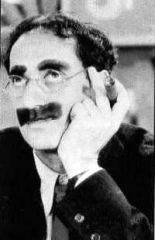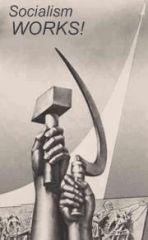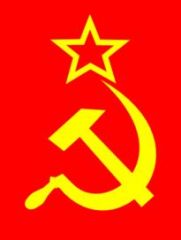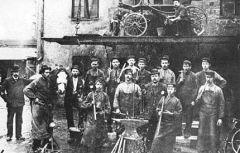![]()
![]()
![]()
Use LEFT and RIGHT arrow keys to navigate between flashcards;
Use UP and DOWN arrow keys to flip the card;
H to show hint;
A reads text to speech;
18 Cards in this Set
- Front
- Back
|
early socialists who thought everyone's problems would be solved when there was no division between rich and poor, and everyone shared property
|

Utopians
|
|
|
thinker who said that people were having kids way faster than growing food to feed them
|

Thomas Malthus
"Malt"-us |
|
|
higher wages = more children
more children = lower wages so people are always poor |

Iron Law of Wages
|
|
|
German philosopher who came up with "scientific socialism" and wrote The Communist Manifesto
|

Karl Marx
|
|
|
wanted the govt to step in to help the poor. he thought letting people go without regulations in the free market would hurt the weaker people. advocated giving the vote to women and workers.
|

John Stuart Mill
|
|
|
A little history humor...
|
Two retired professors were on holiday with their wives at a nudist colony. They were sitting on the veranda one summer evening, watching the sunset. The history professor asked the psychology professor, "Have you read Marx?" The professor of psychology replied, "Yes. I think it's the wicker chairs."
|
|
|
the idea that society should do the greatest good for the greatest number of its citizens
|

Utilitarianism
|
|
|
a society where everyone owns the means of production, not just rich people
|

Socialism
|
|
|
the farms, factories, railways and other business that make goods
|

Means of production
|
|
|
a kind of socialism that predicts a struggle between employees and employers
|

Communism
|
|
|
the "have-nots" -- the working class
|

Proletariat
|
|
|
describe the views of Adam Smith
|
a free market will everyone, not just the rich
|
|
|
describe the views of Thomas Malthus
|
people are having babies faster than they are growing food, so eventually there won't be enough food and there's nothing we can do about it
|
|
|
describe the views of David Ricardo
|
when wages are high, people have more kids, but more people leads to lower wages
|
|
|
contrast the utilitarians and socialists
|
utilitarians - thought individual freedom would lead to people's happiness
socialists - thought focusing on the good of society, not individual freedom, would lead to happiness |
|
|
describe Marx's view of history and how later events challenged his view
|
all of history is a struggle between the "haves" and the "have-nots." later people realized that working reform eliminated many of his problems and nationalism was more important than communism.
|
|
|
link economic theories to present America
|
laissez-faire - this policy describes the American take on the free market exactly - the govt has kept its nose out of the ways companies trade and run their businesses
utilitarianism - the US is a utilitarian country, because of its focus on individual freedom. it also follows JS Mill's idea of the govt intervening in the lives of the poor, like American welfare socialism and communism - because we live in a capitalist economy, it's the exact opposite of socialism or communism. certainly American labor unions and working conditions have improved over the years, but there is still a lot of class struggle. |
|
|
how does Methodism and work reforms alter Marxist predictions
|
people are content where they are, and they don't feel they need to have a revolution. better conditions means they don't need to revolt to get better conditions
|

